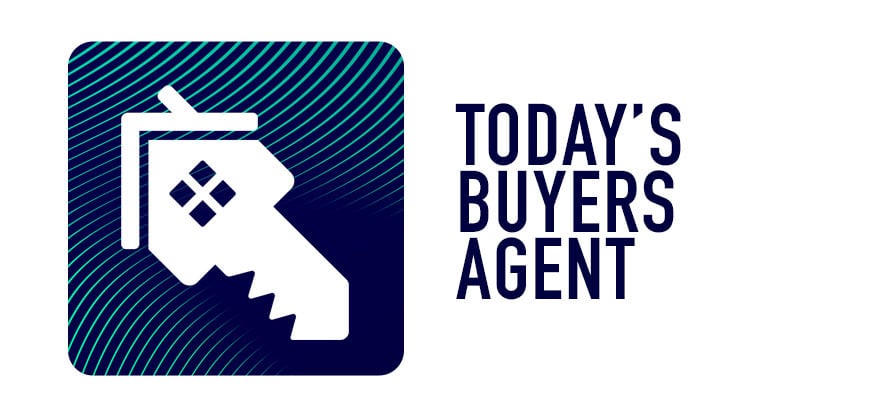Since the NAR commission suit settlement, buyer agents have faced new rules, new documents and a new normal. This month, Inman drills down on Today’s Buyers Agent with the fresh marketing strategies, skills and tools buyer agents are using to prosper in changing times.
Starting your journey as a buyer’s agent on a real estate team can be one of the smartest moves you can make in the industry — especially early in your career. If I had it to do all over, or when a friend or family member asks me the best way to start or get going in real estate, I 100 percent of the time tell them they need to start on the right team.
TAKE THE INMAN INTEL SURVEY FOR JUNE
You gain access to mentorship, they teach you how to prospect and work your sphere, and, oftentimes, provide a steady flow of leads and systems designed to help you succeed. But while being part of a team offers you a head start, your growth ultimately depends on how you show up.
Do you work full-time? Do you show up for work early and ready to show homes? When not showing, are you prospecting?
Here’s what every new buyer’s agent should know to hit the ground running and build a thriving career.
Understand your role and own it
As a buyer’s agent, you have three main activities that, when focused on, you can’t fail.
- Prospect
- Show homes: That means getting great at buyer presentations and getting a buyer’s agency agreement signed. If you’re waiting for the listing agent to tell you how you are going to get paid, you’re not doing it right.
- Negotiate contracts: That means making sure your client is the most informed person in the transaction and can decide what and how they want to proceed.
A primary responsibility is to guide clients through the homebuying process from the first showing to the final signature at closing. You’re not just opening doors; you’re helping people make one of the biggest financial and emotional decisions of their lives.
Your role may be focused on buyers, but it’s a vital part of your team’s success. The more value you deliver, the more repeat business and referrals you’ll generate for both yourself and your team. Remember, as a buyer’s agent, you’re a specialist. Don’t focus on what you’re getting paid; focus on your clients’ needs. Become the expert your clients need and expect you to be.
You should always be focusing on the relationships with your clients. To do this, I recommend Building Relationships with Trust (BRT) – and there’s a system for that. The key is to be interested; not interesting. One way to do that is by using the F.O.R.D. method, where you ask about their Family, Occupation, Recreation, and Dreams. Once you really get to know them, you can serve them better by helping them get what they want and need.
Leads aren’t magic. Follow-up is everything
One of the biggest perks of being on a team is having leads sent your way. But don’t make the mistake of thinking they’ll convert themselves. The truth is, lead generation means nothing without consistent follow-up.
Successful buyer’s agents follow up quickly, often, and with value. They personalize communication, track client behavior, and stay top-of-mind over days, weeks, or even months. Even if your team supplies leads, developing your own prospecting habits—calls, texts, social outreach—ensures you’re not 100 percent dependent on someone else’s pipeline. Proactivity is what separates agents who just survive from those who thrive.
I encourage agents to have a system set up in their CRM for calling and contacting their A, B, and C leads. I call it the ABCs of Lead Management:
- A leads: These are individuals who are ready to buy or sell within the next 30 days. An A lead is someone with whom you have a scheduled appointment.
- B leads: These leads are expected to be ready to buy or sell within 30 to 90 days. The follow-up cadence for B leads involves calling them twice a month, specifically during the weeks of the 1st and the 15th.
- C leads: These are individuals who are 90 days out or more from making a buying or selling decision. C leads are contacted once a month during the week of the 8th.
These timelines help in organizing and prioritizing follow-up efforts to maximize lead conversion. Why? Consider the following widely cited statistics:
- 48 percent of agents never follow up with a prospect, only 2 percent of sales are made on the first contact.
- 25 percent of agents only make the second call, then stop. However, only 3 percent of sales are made on the second contact.
- 12 percent of agents only make three calls, then stop. Yet only 5 percent of sales are made on the third contact.
- 10 percent of agents only make more than three calls and then stop, but 80 percent of sales are made between the 5th and 12th contact!
Persistence pays off.
Lean into training and mentorship
Most high-performing real estate teams offer structured training, onboarding, and even mentorship programs. Our eight-week Buyer Agent Mastery Program is designed to help you close a minimum of two deals per month.
Also, 30-60-90-day onboarding programs are not uncommon. These programs often include role-playing sessions, daily huddles, and shadowing senior agents, all of which accelerate your learning curve by providing a clear roadmap as to what to do each day for the first 90 days on the team.
Become a student of the game. Set yourself up on auto hot sheets, act as if you are a buyer in each price category, study neighborhoods, HOAs, and recreational properties. Know what is on the market, what sells fast, and what takes longer. This knowledge helps you provide expert advice and options to your buyer.
Sit in on listing presentations. Follow top buyers agents around. Ask questions. Watch how top agents manage objections and difficult clients. The more you absorb early on, the faster you’ll grow into a confident and capable professional.
Time management is a superpower
Your clients want to see homes on their schedule — which often means evenings and weekends. But you’ll also need time for follow-up, paperwork, training, and self-care.
Top buyer’s agents block their time like pros. Use scheduling tools and calendars to stay organized, prioritize client needs, and carve out time to stay ahead of your business instead of drowning in it. Remember these:
- Working hard is great — working smart is even better.
- Time management is actually “me” management.
Embrace technology like a pro
Your customer relationship management system (CRM) will quickly become your best friend. It’s your command center for managing leads, automating follow-ups, and tracking communication. Learn it inside and out. Use it every day, throughout the day.
Well-run teams take much of the paperwork and admin work off the plate of their agents and allow them to focus on money-making activities (MMAs).
Many teams also use tools for document signing, transaction tracking, and client communication. Embrace these technologies and explore ways to leverage social media and online marketing to build your personal brand and reach new clients. In today’s real estate world, digital savvy is non-negotiable.
Leverage the power of artificial intelligence (AI) for prospecting, role playing, lead conversion, messaging and marketing. AI can assist in pricing strategies, neighborhood information, and data analytics. Ask great questions, review and double-check responses. AI in your practice can be a game changer and a time saver.
Master the local market
Your edge as a buyer’s agent is your market knowledge. Know the neighborhoods. Track school ratings. Understand commute times, price trends, and what’s coming soon. Preview homes, even if you don’t have a client. Learn the inventory. Become the master of your market.
When buyers ask, “What do you think of this area?” they expect more than a shrug. The more you know, the more confident and trusted you’ll become. What are the activities, walk score, average sales price, school test scores, etc? Don’t send them elsewhere to find information, be the source for expert information and advice.
Know how you’re getting paid
Real estate compensation structures vary. With the recent class action lawsuits, all eyes are on commissions. On a team, a typical model might be a 40/60 split for your first two closings each month, with small increases as your production increases. Don’t get caught up in percentages. Focus on volume, support, and opportunity. Sometimes a smaller slice of a bigger pie is much sweeter.
Buyer’s agents following the right system should close between 30 and 50 homes a year. As a buyer’s agent doing what the average agent does and covering all of your own expenses, including marketing, transaction management, etc., you may do what the average agent does and close three to seven deals a year.
I like to ask this question, “What’s more important to you; the split you’re on or the amount of money you take home to your family?” Forty percent of 24 to 30 transactions is a lot more take-home than 100 percent of seven deals. The more you sell, the better you get at the business.
Build relationships and network constantly
Your long-term success in real estate will come from relationships. Read that first sentence again! Get to know your clients, vendors, other agents, and people in your community. Stay visible. Attend local events, join networking groups, and connect with people on social media. Relationships lead to referrals — and referrals are gold.
Set goals and track everything
Don’t just hope you’ll succeed — plan for it. Set monthly transaction goals, income targets and personal development milestones. Break those down into weekly action steps and track your progress. Whether it’s through a lead tracker, accountability partner or digital dashboard, seeing your numbers keeps you focused and motivated.
My clients use our Daily Success Habits Tracker to track their activities: ideally, dollar-producing activities. They shoot for 61 points a day, and the tracker helps them stay focused on what matters and not “fake work.”
Beyond that, we encourage them to use our scheduler to really focus on their time, their goals and how they can work on dollar-producing activities.
You’ve got this
Starting out on a real estate team as a buyer’s agent is a rewarding journey packed with opportunity. By owning your role, mastering follow-up, leveraging training, and focusing on relationships and systems, you can build serious momentum — fast.
Remember, success in real estate isn’t just about closing deals. It’s about showing up, staying consistent and delivering an unforgettable client experience. Do that, and you won’t just grow your income — you’ll grow a lasting career.




